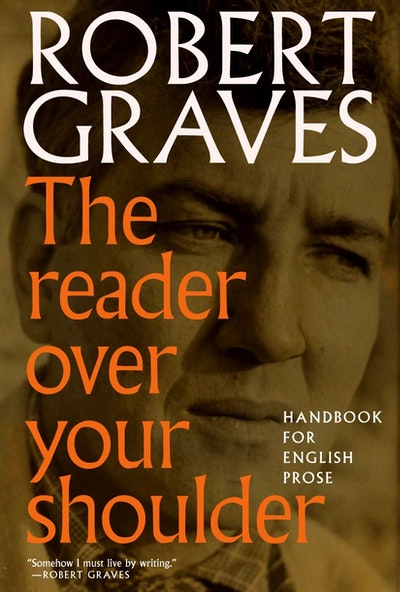In late October 1939, Robert Graves wrote to Alan Hodge: “I have begun a new book, about English.” Graves and Hodge had recently completed a social history of the between-wars period called The Long Week-End. Now they embarked on this new project, “a handbook for writers of English Prose,” to be called The Reader Over Your Shoulder.
The world was in total upheaval. Graves had already fled Majorca three years earlier at the start of the Spanish Civil War. As they labored over their new writing project, Graves and Hodge witnessed the fall of France and the evacuation of Allied forces at Dunkirk. In early September 1940 began the bombing of London by the German Luftwaffe, a concentrated effort to destroy the resolve of the English people. Graves’s and Hodge’s idea was simple enough: at a time when their whole world was falling apart, the survival of English prose sentences, of writing that was clear, concise, intelligible, had become paramount if hope were going to survive the onslaught. They came up with forty-one principles for writing, the majority devoted to clarity, the remainder to grace of expression. They studied the prose of a wide range of noted authors and leaders, finding much room for improvement. Quoting grammarian and bestselling author Patricia T. O’Conner from her new introduction, “With a new war to be won, the kingdom couldn’t afford careless, sloppy English. Good communication was critical.”
The book they would write would turn out to be one of the most erudite, and at the same time one of the most spontaneous and inspired, ever to take on the challenge of writing well. O’Conner in her introduction describes The Reader Over Your Shoulder as nothing less than “the best book on writing ever published.” The present edition restores, for the first time in three-quarters of a century, the original, 1943, text, which in subsequent printings and editions had been shortened by over 150 pages, including much of the heart of the book.
